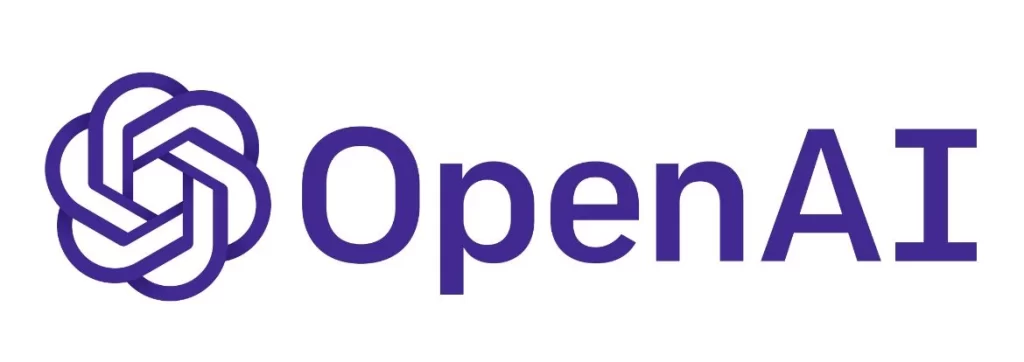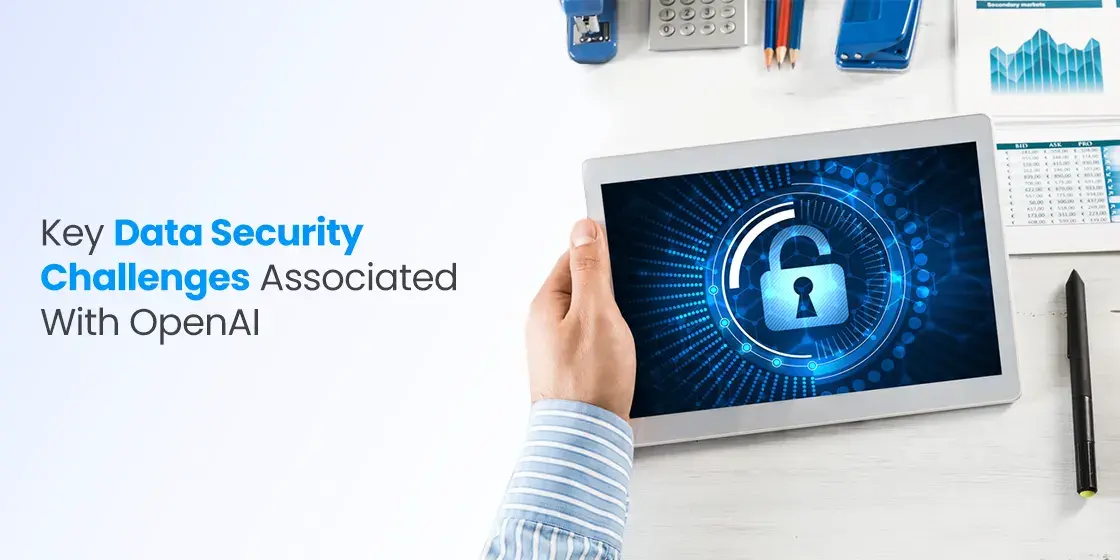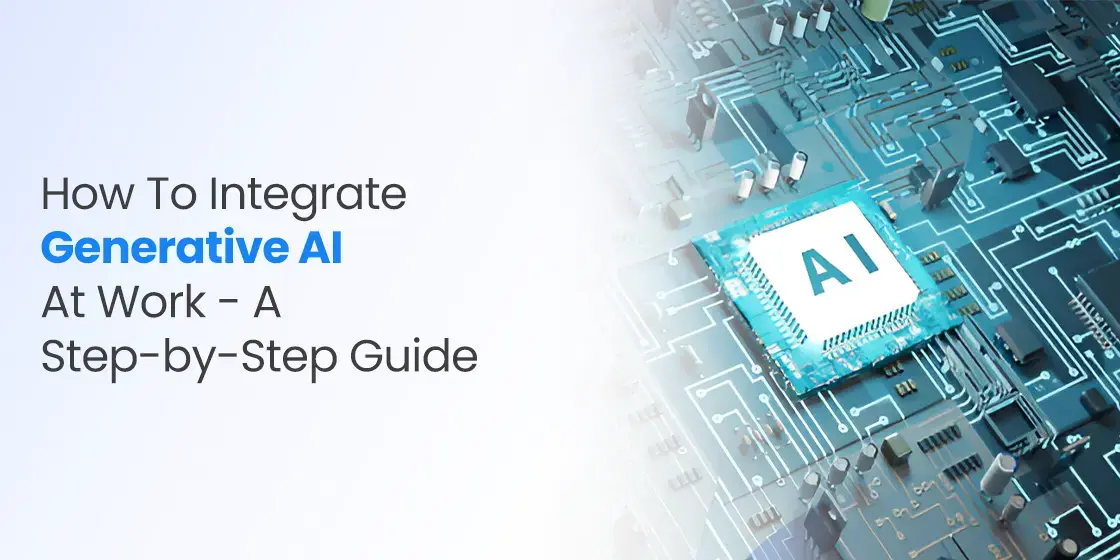Table of Content
Know About the Risks Involved in Integrating OpenAI with Company Data
The introduction of ChatGPT has taken the tech world by storm. It has shown how fast the technology of AI is progressing, taking the automation process to another level. The stunning perfection of generating to-the-point content is something very amazing done by newly introduced OpenAI model. It is one of the first AI models that has shown great capability of interacting with humans at a personal level. However, this new launch has some little loopholes as well which has prompted many researchers to think about OpenAI data security. It is indeed a great tech revolution, but has still some limitations related to the security of confidential data.
Today, data security is considered important by every organization. They understand that the company and customers data should not be compromised by any means. Due to this, they prefer to take database development services from the reputed agencies that have got a proven track record in the market. And now with the emergence of AI, they also keep the proficiency of AI in consideration before selecting any digital agency from the market. This shows that AI is steadily becoming important in the tech world, in which many are using it to design a pathway for data safety and security.
But, it should be also noted that nothing is failsafe in the tech world. This means that AI has also some limitations that should be kept in mind before integrating it in the core processes. The latest emergence of OpenAI model is a fine example of that. Though it has revolutionized the process of automation, but has also opened up some serious concerns related to data security.
In this blog, we will take a look at the prospect of OpenAI data security in detail. It will let you know what type of challenges are associated with the integration of OpenAI model. But, before moving straight into that, let us first understand why OpenAI data security matters for enterprises.
Importance of OpenAI Data Security for Enterprises

During the last few years, AI has emerged as a strong technology to automate various operations in the tech world. This is the major reason why every business wants to integrate it to take benefits of the rising tech sensation. They understand that AI is the next big thing in the tech circuit, and products that are associated with it should be given top priority. The name of OpenAI is therefore getting a lot of attention, as it is offering a new way to the businesses to integrate AI in the automation of different tasks.
There are a lot of ways in which OpenAI is helping businesses to move forward in the automation age. Take the example of latest ChatGPT into the consideration. It is a powerful product that allows businesses to generate on-demand content quickly. From blogs to detailed reports and more others, ChatGPT has the capability to do everything, provided right instructions are given to it. ChatGPT is created with the advanced Natural Language Processing (NLP) model, meaning that it can easily understand all the queries given in the human language.
Similarly, research and development processes has taken a new turn with the integration of OpenAI model. It has enabled automation across multiple industries, allowing companies to function with more accuracy. All of these benefits have made OpenAI hugely popular, and enterprises are simply preferring it to automate different critical tasks.
OpenAI’s Stance on Data Safety and Security
The position of OpenAI on data safety and security is very clear. It takes a proactive approach in maintaining the policies of data security. Some of the steps or rules ensured by OpenAI on data safety and security includes:
- OpenAI is compliant with the SOC 2 model.
- OpenAI is annually tested with third-party penetration testing.
- OpenAI states that customers can easily meet different regulatory, industry and functional requirements using the model, such as HIPAA.
- OpenAI regularly conducts different types of bug bounty programs, in which various researchers and ethical hackers are invited to find security vulnerabilities in the system.
Key Data Security Risks Associated with OpenAI

OpenAI is a great model carrying tons of automation opportunities. But, it has some limitations as well that cannot be neglected by any means. These risks are mostly linked with the data security, which is why companies are a bit concerned about that. They keep in mind these factors while integrating OpenAI, as data safety always remains utmost priority for them.
If you do not know what type of security challenges or risks are associated with the integration of OpenAI, take a look at the points defined below.
Retraining Models with ChatGPT Data
When businesses use ChatGPT, their conversation data may be used to train and improve ChatGPT. This means that any proprietary information businesses share with ChatGPT could be exposed to other users. This is a serious risk for businesses, as it could lead to intellectual property theft or other competitive disadvantages. During the last few years, a lot of businesses have experienced online data theft in the market, which is why it is becoming a serious concern for many businesses.
To reduce this risk, OpenAI offers a solution for enterprises. They can fill out a form from OpenAI to opt out of sharing their interaction data for model improvement. The form asks for the organization’s ID and the email of the account owner. Alternatively, they can disable chat history in ChatGPT for a single account if they prefer.
OpenAI Data can be Exposed
When you use OpenAI’s API, you should be aware of the exposure risks of your data. OpenAI keeps the data you send via the API for up to 30 days to check for any misuse or abuse. Then, the data is usually deleted, unless OpenAI has a legal obligation to keep it. During this time, your data might be accessible to OpenAI staff, external sub-processors, or even the public in case of a data breach. This is indeed a concerning point that needs to be looked upon properly by the OpenAI developers and management.
Additionally, the files endpoint allows users to upload data for customizing their own models, but this data is not automatically deleted. Enterprises may face challenges and risks in managing this data effectively. That is where another vulnerability of OpenAI data security is highlighted, showcasing how risky it is even when the data is deleted.
Uncertain GDPR Compliance
Using online content as a source of AI training data, as OpenAI does, can pose significant difficulties for complying with GDPR rules. A key issue for GDPR compliance is the possible processing of personal data without clear consent. This is something that businesses need to be cautious about when using OpenAI’s services. Generally, GDPR requires that enterprises have a legitimate interest or legal basis for handling personal data. All the companies therefore should need to showcase compliance with the GDPR rules to function freely in the market.
If these rules are not met, then companies can be slapped with serious fines that can also lead to their temporary suspension as well. It is indeed a powerful tool that can benefit businesses, but it also poses some legal challenges for data protection as well. Before using OpenAI, businesses should carefully evaluate the legal grounds for processing data and take the appropriate measures to ensure the privacy and security of individuals’ data.
Third-party Sub-processors can Expose Data
A key factor for data security and privacy in enterprises is how sub processors handle customer data. OpenAI uses various sub processors for different processing activities on Customer Data, as outlined in the OpenAI Data Processing Agreement. Just like SOW document, this file specifies the roles and responsibilities of each sub processor, as well as the safeguards and controls they must follow to protect customer data. This is one of those points that brings risk on the safety of customer data, because sub processors can violate this agreement any time.
The cloud infrastructure and data warehousing functions are handled by subprocessors such as Microsoft Corporation and Snowflake, respectively. In addition, OpenAI affiliates offer services and user support, and also performs human annotation of data for service improvement. Due to this process, the data security environment becomes more complex, elevating the chances of data breaches or theft any time.
OpenAI Models Cannot be Evaluated by Enterprises
AI models can be very useful for enterprises, but they also require a clear understanding of how they work and what data they use. However, the models from OpenAI are not fully open, meaning that their training data and model details are not shared with the public. This can create uncertainty about the reliability of the outcomes produced by the models. It can create security concerns, because every organization wants to know how its data is processed or used by any third-party product.
The OpenAI model is relatively new, which is why it can become a hot target of many hackers. This makes the AI-based systems a bit vulnerable, and hence no one will dare to invest in it without knowing the protocols of its security structure. In short, AI models produce outputs that may be hard to verify or trust without knowing the data they were trained on. This can pose serious risks, especially in domains where AI input is crucial for decision-making.
Best Ways to Avoid Security Breach Using OpenAI

The OpenAI data security is indeed a concerning topic that needs to be understood properly. It is best advised to consider some important tips before integrating OpenAI model in your business processes. If you do not know much about them, take a look at the key points defined below.
Follow Security Rules of OpenAI
OpenAI provides various methods to enhance security. Enterprises that want to use OpenAI services should examine these best practices carefully and implement appropriate measures and policies within their own systems to ensure compatibility with these best practices. It includes different types of security rules, including data compliance, plagiarized content and more others. By following these rules, you will not only comply with the OpenAI usage points, but also the standard security practices of the AI industry.
Use Azure OpenAI Services
For enterprises that handle sensitive data, choosing Microsoft’s Azure OpenAI service is a smart decision. Azure OpenAI has built-in enterprise security and compliance features that make the AI environment more trustworthy. Microsoft constantly updates and improves the security and confidentiality policies for Azure OpenAI, following the same standards as its other Azure services.
Work with Prompt Content Monitoring Procedures
It is also recommended to monitor every login attempt. Usually, this process is done with the help of prompts, so try to implement a system that can send every prompt to the OpenAI. These logs will be then monitored there, and upon finding anything suspicious, an alert would be sent to the administrator. This type of approach always helps to detect breaches or vulnerabilities in any system very early.
Use AI Tools Built with Top-notch Security
To ensure the highest level of security and data protection for your AI projects, you may want to consider other AI tools that are more suitable for enterprise environments than OpenAI. These tools have been built with security as a priority and can offer more safeguards and controls to prevent potential security threats. By expanding your AI toolbox with these advanced tools, you can benefit from more secure and reliable AI solutions.
Final Words
That takes us to the end of this blog in which we have discussed about OpenAI data security in detail. It is indeed an important topic that should be understood properly. A lot of times, people think that AI models like OpenAI can be implemented easily. They do not think about the repercussions this model can cause in the wake of any data breach. It is therefore important to first understand the risks that are associated with OpenAI, as how it can impact the data confidentiality through different means. In this blog, we have defined some important areas in which using OpenAI model is vulnerable. Besides that, we have also listed few best practices that can help you to mitigate those risks effectively.
Meanwhile, if you are looking for a company that can help you to develop quality AI-based software applications, get in touch with us today. We will assist you to develop cutting-edge AI apps, rightly as per the given demands.
Empower your digital initiatives with BariTechSol, a premier custom software development company. Our skilled team tailors cutting-edge solutions to your unique needs. Elevate your tech experience and stay ahead in the digital realm. Partner with BaritechSol and code the success of your next big idea.


